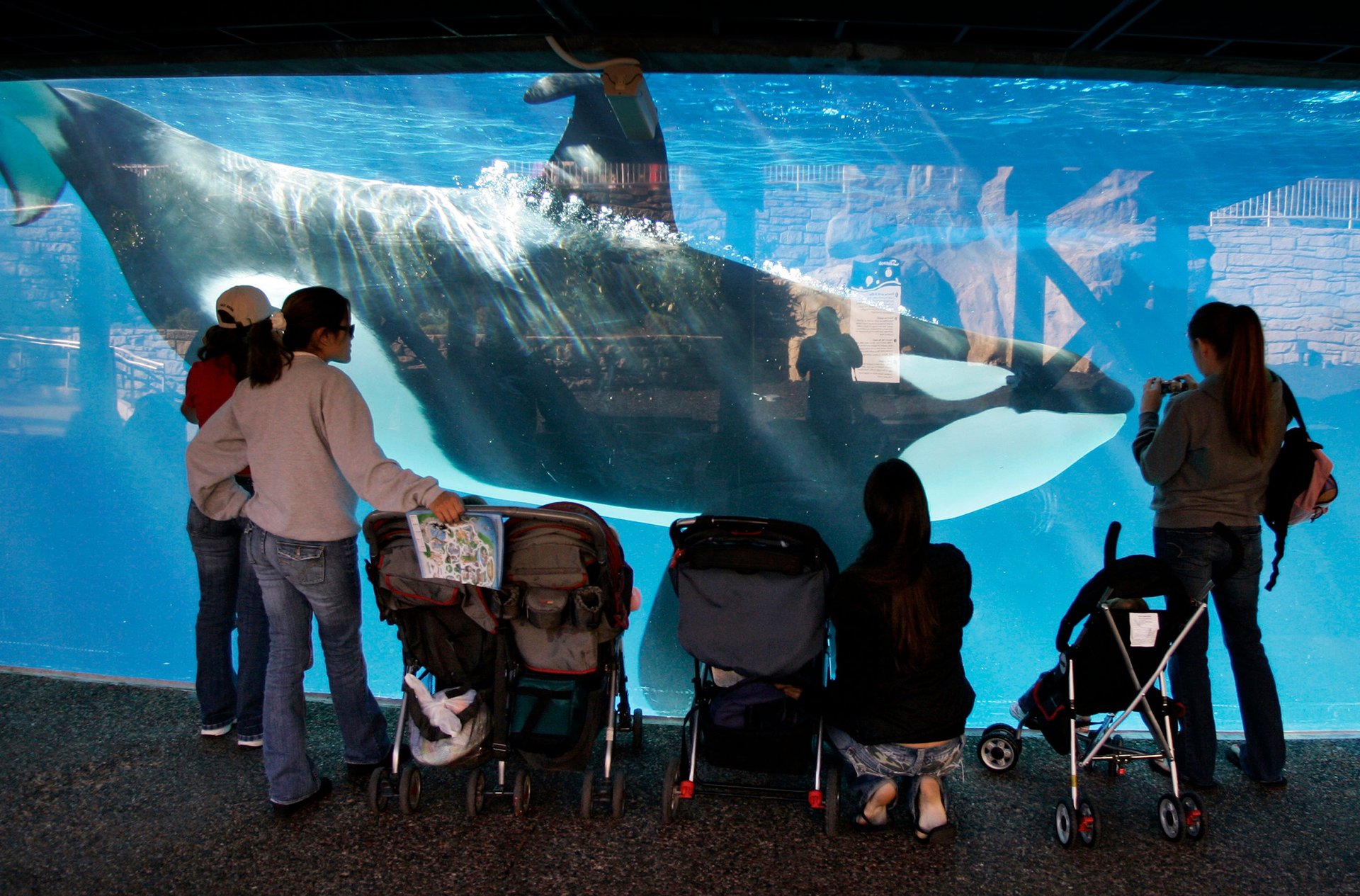SeaWorld’s killer whales will be “the last generation of orcas” in its care
SeaWorld has said it will stop breeding orcas, meaning that the generation of “killer whales” now in its US theme parks will be the last to live and die in captivity. The decision comes after years of controversy, campaigning, and even loss of life—both whale and human.


SeaWorld has said it will stop breeding orcas, meaning that the generation of “killer whales” now in its US theme parks will be the last to live and die in captivity. The decision comes after years of controversy, campaigning, and even loss of life—both whale and human.
“This year we will end all orca breeding programs—and because SeaWorld hasn’t collected an orca from the wild in almost four decades, this will be the last generation of orcas in SeaWorld’s care,” wrote Joel Manby, president and chief executive officer of SeaWorld Parks and Entertainment, in an op-ed in the LA Times. He said that the parks would also phase out theatrical shows featuring orcas.
The animal rights group PETA said the move is a step in the right direction but doesn’t go far enough, and it urged its supporters to keep up the campaign against SeaWorld.
“PETA has campaigned hard, and now there is a payoff for future generations of orcas,” PETA President Ingrid E. Newkirk said in a statement on its website. ”SeaWorld must open its tanks to the oceans to allow the orcas it now holds captive to have some semblance of a life outside these prison tanks. SeaWorld has taken a step forward but more must come. “
The black-and-white marine mammals have become beloved of the American people over the decades since SeaWorld first began capturing, breeding, and keeping them in 1964. But in recent years, animal rights groups have ramped up their campaign against the practice of keeping the big, intelligent creatures in tanks.
One whale in particular, Tilikum, became the center of debate after he featured in the film Blackfish. During his time in captivity, the whale has been responsible for the deaths of three trainers. Earlier this month, it was revealed that he is dying of a chronic, progressive, drug-resistant lung infection.
Manby, in announcing the end of the program, warned that zoos and parks play a role in conservation at a time when species are being lost at a high rate through poaching, habitat destruction, and environmental disaster.
“Without a critical mass of informed and energized people, humanity will never make the difficult decisions that are necessary to halt and reverse the exploitation of wild places and the extinction of wild species,” he wrote.
Manby pointed out that SeaWorld helped foster a love of orcas in generations of Americans. “We are proud of contributing to the evolving understanding of one of the world’s largest marine mammals,” he wrote. “Now we need to respond to the attitudinal change that we helped to create.”